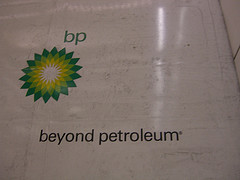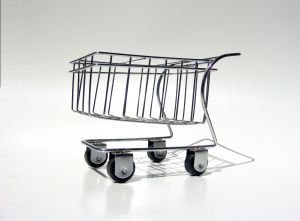 Earlier this month, I wrote a post about how the BP brand is being affected since the oil spill in the Gulf of Mexico. Sadly, the spill has yet to be contained and the BP brand is feeling the fallout.
Earlier this month, I wrote a post about how the BP brand is being affected since the oil spill in the Gulf of Mexico. Sadly, the spill has yet to be contained and the BP brand is feeling the fallout.
However, several surveys and studies have been conducted in recent weeks in an attempt to gauge consumers’ opinions about the BP brand since the oil spill, and the results might not be entirely what you’d expect.
Following are some highlights from those reports (via BrandWeek):
- From an Economist and YouGov survey: When it comes to trusting BP to “do the right thing in stopping the oil spill and cleaning it up,” 9% of respondents said they trust BP “a great deal” and 13% trust BP “quite a bit” while 20% have “only some” trust that BP will do the right thing, and another 20% said they have “very little” trust that BP will do the right thing. The majority of respondents, 28%, trust BP “not at all.” The remaining respondents stated that they were not sure how they felt.
- From the same Economist and YouGov survey: 65% of respondents believe that BP and other companies involved in the oil spill are “pointing the blame on others and avoiding responsibility” while just 35% believe BP and other companies involved are “doing whatever it takes to stop the spill and clean up the oil.”
- From a USA Today/Gallup poll: 34% of the respondents rated BP’s response to the spill as “poor” and 39% rated it as “very poor”. Only 6% rated BP’s response as “very good” and 18% rated it “good.”
- From a Pew Research Center and National Journal Congressional Connection poll: 44% rated BP’s response to the oil spill as “poor” and 26% rated it “only fair” while 16% rated BP’s response “good” and 3% rated it “excellent.”
- From a CNN and Opinion Research Corp. poll: 76% of respondents disapprove of BP’s response to the oil spill and 24% percent approve.
So it appears to be safe to draw the conclusion from the results of these varied studies that consumers are not happy with BP’s response to the oil spill in the Gulf of Mexico. However, the most interesting piece of data from these surveys is probably one that comes from the CNN and Opinion Research Corp. poll where consumers were asked whether or not the BP oil spill will affect their willingness to purchase gasoline from a BP station. 70% of respondents said that the oil spill does not affect their decision on where to purchase gas while just 28% said they are less likely to purchase gasoline from a BP station since the oil spill.
Despite the current negative public sentiment for the BP brand, consumers will still buy from BP because a gasoline purchase is not typically an emotional purchase decision. Instead, gasoline purchases are typically a convenience and price driven purchase decision. Not many consumers are willing to drive out of their way to purchase gasoline from a specific brand.
Despite that consumer behavior, BP is doing damage control by placing ads in publications like the New York Times where a full-page BP ad appeared on June 2nd using messages like, “We will get this done. We will make this right.” Also, the “Beyond Petroleum” tagline is conspicuously missing from the BP logo in the ad.
Normally after seeing this type of ad, I’d pose the question — do you think it’s too little too late for BP? However, based on the results of the consumer surveys mentioned above, it seems like this type of ad spending might not even be necessary for BP. Even though consumers are not happy with BP, the majority are still quite willing to purchase gas from BP, which is what makes this story so unique and interesting. What lessons will we ultimately be able to learn from a branding perspective when the BP oil spill story is over? It will be interesting to find out as the story continues to unfold.
Whether you agree with how BP is handling the oil spill response or not, one thing is for certain — this is an event that brand managers and strategists should watch and learn from (both the good and bad).
Image: Flickr
Lucy is Editor at Corporate Eye



BP damaged more than its own brand. It also damaged the image of the communities involved and made it harder for them to compete for capital investment. Read about the work being done to help economic development professionals refurbish their community brands.
http://strengtheningbrandamerica.com/blog/?p=343